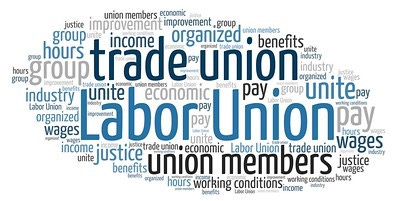UNIONS: STRONG WORKERS, STRONG FRIENDSHIPS
WORK SHOULD BE HAPPIER – UNIONS INCREASE OUR CIRCLE OF FRIENDS
The average American spends over 90,000 hours of their life working. Prosperous societies should encourage people to find their purpose, not just labor to survive. Half of Americans dislike their work, and even more of us don’t feel engaged. A study by Officevibe said that 70% of people identify friends as the most crucial element to happy work. Research shows that people in close work relationships are more engaged, produce superior results, and are happier. The decline in labor power that came with decreased collective bargaining has contributed to the drop in work friendships.
THE WORK FRIENDSHIP CHALLENGE
How long do two people have to spend together before they become friends? University of Kansas professor Jeffrey Hall published a study that asked this question in 2018. The results: “casual friendship” – 30 hours, “friendship” – 50 hours for “good friendship” – 140 hours, and “best friends” – 300 hours. With over half our waking hours at work, it seems that should be the best environment for making them.
Instead, American loneliness, in general, has been on the rise. The problem: people who have a work “best friend,” has dropped significantly—from 75% in 1990 to 59% today. Close friendships are in decline as 32% of Americans today say they have two or fewer close friends. This modern friendship rate is double the rate of isolation reported in 1990. Loneliness is terrible for Americans’ mental and physical health. Reductions in the total number of friendships increase loneliness. It exacerbates depression, impairs cognitive abilities, weakens one’s immune system, and stresses one’s cardiovascular system.
Moreover, our jobs have worsened, and we have become divided as workers. Longer worker tenure that enabled time for friendships to form is in decline from a more individualistic labor economy. In addition to destroying work relationships, the reduction in labor power increased economic inequality, exacerbating America’s mental health.
UNIONS CREATE JOBS WE WANT TO STAY & RETIRE WITH
One implication of the reduction in employee tenure was the corporate transition from offering pension plans to offering 401ks. Employers no longer want to risk the cost of defined benefit plans (pensions) because employees leave more often. When we compare unionized labor with non-unionized labor, we find that union labor cares much more about retirement. Labor union workers receive defined retirement benefit plans more often than non-union labor.
On top of more stable retirement plans, organized labor also helps employees save more by earning more on average. In addition to more savings, another driving factor for tenure is the increased freedom from paid leave benefits. Unionized workforces are far more likely to have paid sick and family leaves than non-unionized labor. In turn, unionized laborers are more likely to stick with a job through their recovery period.
On top of increased benefits, collective bargaining increases job security and, in turn, employee tenure as well. Unions typically work with employers to preserve jobs and protect workers through legal support. Beyond protection from firing is increased job security from better health and safer work conditions. Furthermore, economists Toke Aidt and Zafiris Tzannatos reported that firms that employ union members tend to have fewer voluntary quits.
A SANE AMERICA IS A UNIONIZED AMERICA
Employees staying at firms longer makes it easier for work friendships to be forged and reduce society’s loneliness. Unions offering paid leave, retirement plans and higher median compensation provides people with greater mental and financial stability. Our economy must increase the accessibility of unionizing to improve America’s mental health. Legislation like the PRO Act, awaiting passage in the U.S. Senate, will help more employees organize together. If you want America’s mental health to improve, empower workers through unions.





